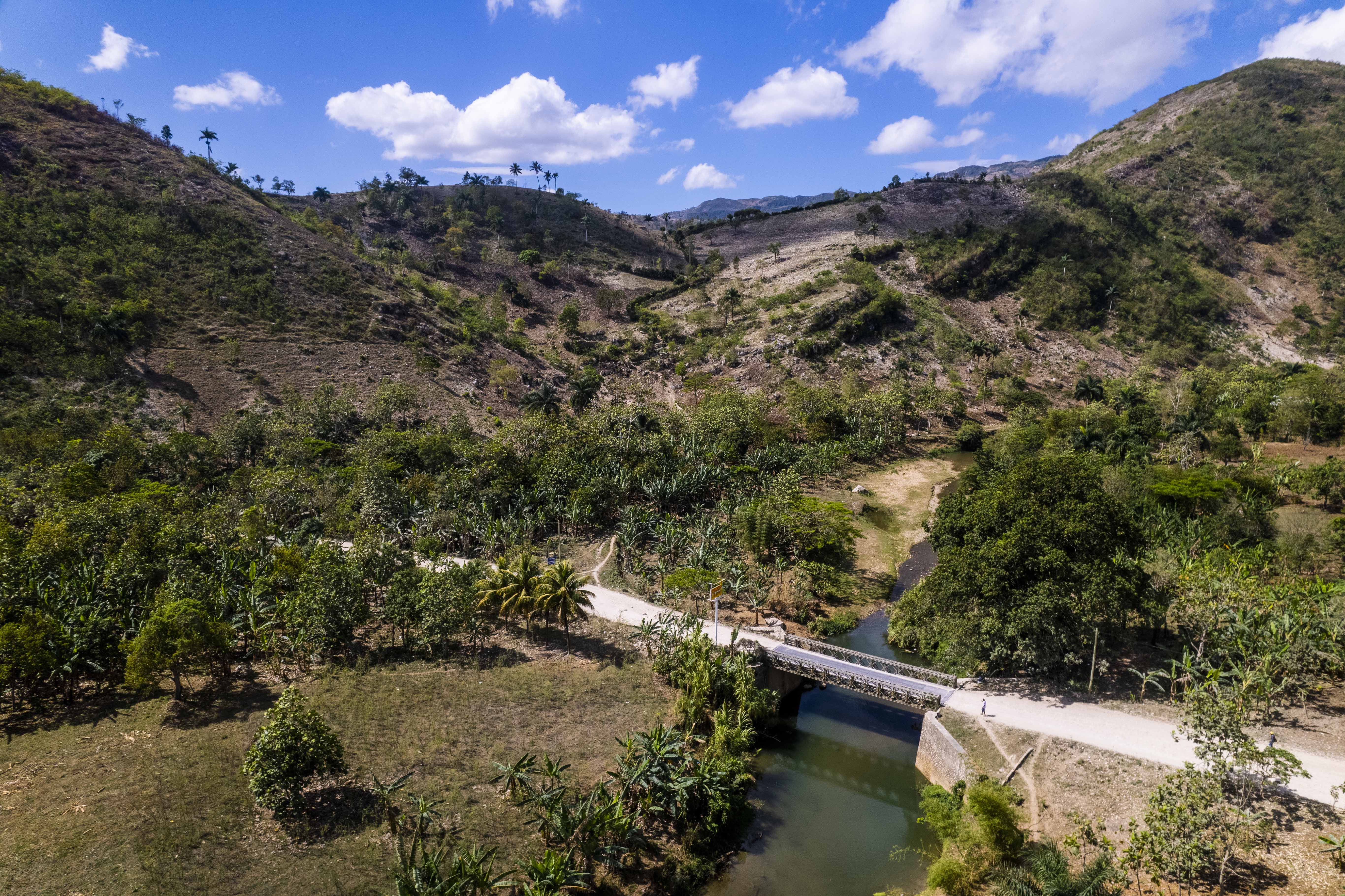Author: Dorine Jn Paul, Climate Change Adaptation Specialist, UNDP – Haiti
Addressing Haiti's Climate Security Challenges: A Pathway to Peace and Resilience
16 avril 2024

Ranked first on the Global Climate Risk Index and third on the Long-Term Climate Risk Index, Haiti stands at the forefront of climate vulnerability.
Haiti, a Caribbean nation endowed with natural beauty and rich cultural heritage, finds itself grappling with a myriad of challenges, from environmental degradation to political instability. UNDP is taking innovative steps to help the country address these in an integrated way.
Climate risks…
Ranked first on the Global Climate Risk Index and third on the Long-Term Climate Risk Index, Haiti stands at the forefront of climate vulnerability. According to the World Bank, a staggering 96 percent (96%) of its population faces exposure to a myriad of climate-related risks, from rising temperatures to intensified hurricanes and coastal erosion. These challenges are compounded by environmental degradation and land-use issues, which pose a serious threat to infrastructure, agriculture and human life. Other shocks due to seismic hazards such as the devastating 2010 earthquake exacerbate the country's level of vulnerability, with the latter causing losses and damage estimated for a decrease of over 8 % in growth in 2010.
Security risks…
However, Haiti's struggles extend beyond environmental realms to encompass security concerns of a different nature. With an estimated 165,000 people internally displaced due to violence, insecurity permeates many facets of daily life. The prevalence of violence in certain regions has forced vulnerable communities, men, women, and children, to flee their homes in search of safety. This can take them to places at risk of climate change, exacerbating existing poverty and social disparities, and potentially leading to conflicts over scarce natural resources. The interaction between security challenges and environmental vulnerabilities is creating a complex web of intersecting risks that threaten the stability and well-being of Haitian society. The erosion of social cohesion and governance challenges further compounds the situation, creating fertile ground for conflict and unrest.
Concrete actions on the ground
Addressing these multifaceted challenges requires a holistic and integrated approach. Initiatives such as the climate change adaptation project in Trois Rivieres watershed (North-West region, Haiti), for which nearly 23 Millions USD funding was approved by the Green Climate Fund in July 2023, represent a paradigm shift towards ecosystem-based interventions and community-led solutions. By prioritizing inclusive decision-making processes and sustainable land-use practices, the initiative aims to not only mitigate climate risks but also promote social cohesion and peace at both the local and national levels.
A detailed conflict analysis will be developed at the inception phase planned to take place in May 2024, to ensure the consideration of conflict sensitivity in the project logic prioritizing locally-led and gender-balanced approaches. The analysis will help the project deliver in a way that is cognizant of local and national realities while helping to tailor its delivery approach in a manner that is impactful and ensures that no one is left behind.
The importance of sustainable governance cannot be overstated in navigating Haiti's complex landscape of challenges. By engaging diverse stakeholders at all levels, from local communities to national policymakers, and fostering dialogue, initiatives can bridge divides, strengthen trust, and promote collaboration towards shared goals.
Moreover, investments in awareness of responsible environmental protection, livelihood diversification, and capacity-building can empower communities to adapt and thrive in the face of climate uncertainty. Climate-sensitive land use management and planning will provide opportunities for communities to engage in dialogue, build trust, and cooperate on shared goals. Ultimately by fostering collaboration and mutual understanding, climate and integrated water management policy frameworks can contribute to broader efforts towards peacebuilding and conflict prevention.
Towards a Sustainable Future :
The intervention in the Trois-Rivieres Watershed is part of a broader effort to support the Haitian Government and people address climate security challenges. UNDP helped to support Haiti’s first ever assessment of climate security challenges and participates in a recently established Climate Security Group. The project embodies the main aspects that this Group agrees are needed to address compound environmental and conflict risks: establishing a common understanding among stakeholders on what the linkages are; ensuring synergy and complementarity of actions; adapting mechanisms to better finance peacebuilding and climate change actions; technical capacity-building and making the most of technologies and research structures. Above all the project suggests pragmatic ways to close the funding gap and try and ensure that communities living in areas affected by both insecurity and climate change are empowered to adapt to multi-dimensional risks. This is climate security in practice.
Read the article in french here : Relever les défis de la sécurité climatique en Haïti : Une voie vers la paix et la résilience | Programme De Développement Des Nations Unies (undp.org)

 Locations
Locations

